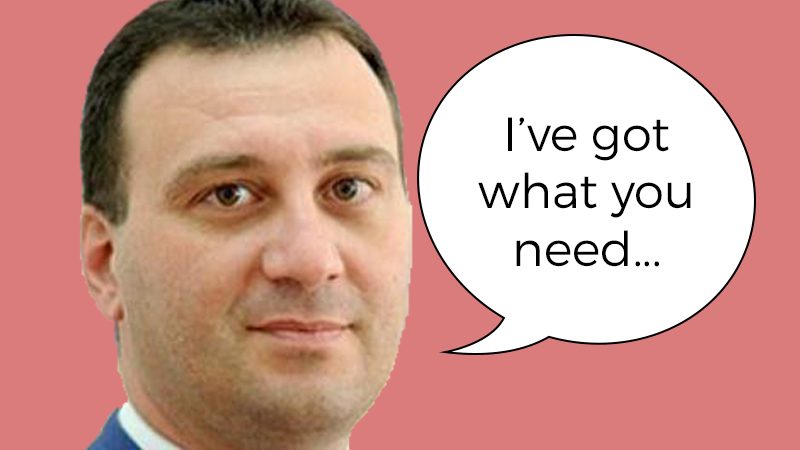Planning Authority Executive Chairman Johann Buttigieg believes that “as long as foreign investment keeps coming into the country” the construction industry will remain “sustainable.”
He also warns that the moment we start issuing less permits “we would see rental rates and prices go higher due to foreigners competing with the locals.”
Apart from the fact that rents and property prices are already increasing, if we were to follow his thinking even our social well being would depend on issuing more permits.
Buttigieg is selling us a twisted economic model in which Malta is fast becoming a junky dependent on the daily dose of construction which is also dependent on the influx of foreign property buyers. Many, are themselves interested in selling property to other buyers in an endless chain of speculation.
This suggests a dystopia of endless construction in our towns, villages and countryside. When the supply of land is exhausted, land will be reclaimed from the sea.
To keep this going we need to brand our country as a playground for the global rich, dishing our precious land at a cheap price to foreigners as happened with AUM which was awarded a heritage site in Bormla and ODZ land in Zonqor only to discover two years down the line that they have only managed to get 15 students in their first year of operation. Even Smart City, which was originally planned as an IT city, is having its masterplan changed to accommodate more property development.
The only way to sustain Buttigieg’s economic model and keep the bubble from bursting is by constantly changing the planning goal posts to facilitate more construction. If construction comes to a halt we will be in big trouble, according to Buttigieg’s thinking.
We have seen changing goal posts under both administrations. The notorious ODZ extension in 2006 comes to mind. This was also justified by the government as a way of keeping property prices down.
But we cannot help noticing that since 2013 the government has pressed on the accelerator by constantly devising policies aimed at allowing more construction, both in the countryside through loopholes in planning rules for ODZ development, and through a high rise policy which risks obliterating our skyline. In this way, we are facing an attack on all fronts.
Perversely, Buttigieg also suggests that it is thanks to the large influx of people coming to live and work in Malta that we can achieve the critical mass to solve the traffic problem.
“If we don’t have a critical mass of people, then traffic solutions – such as a metro or others – would not be economically viable.”
Instead of stepping up our efforts to reduce traffic, also by reducing the number of permits for developments which serve to increase traffic in our localities, we should wait for Malta to reach an unsustainable mass before investing in a proper transport system.
Many would argue we have reached that point already. But have we ever assessed the social impact of such an increase in our population?
It is also ironic that the Executive Chairman of a public authority which is meant to regulate development in Malta takes such a pronounced public stance in favour of more development. It suggests that the Planning Authority plays a vital role in the chain linking the State to developers.
In fact, it feeds the impression that the Planning Authority is the needle which injects the daily dose of construction in our country’s economy.













